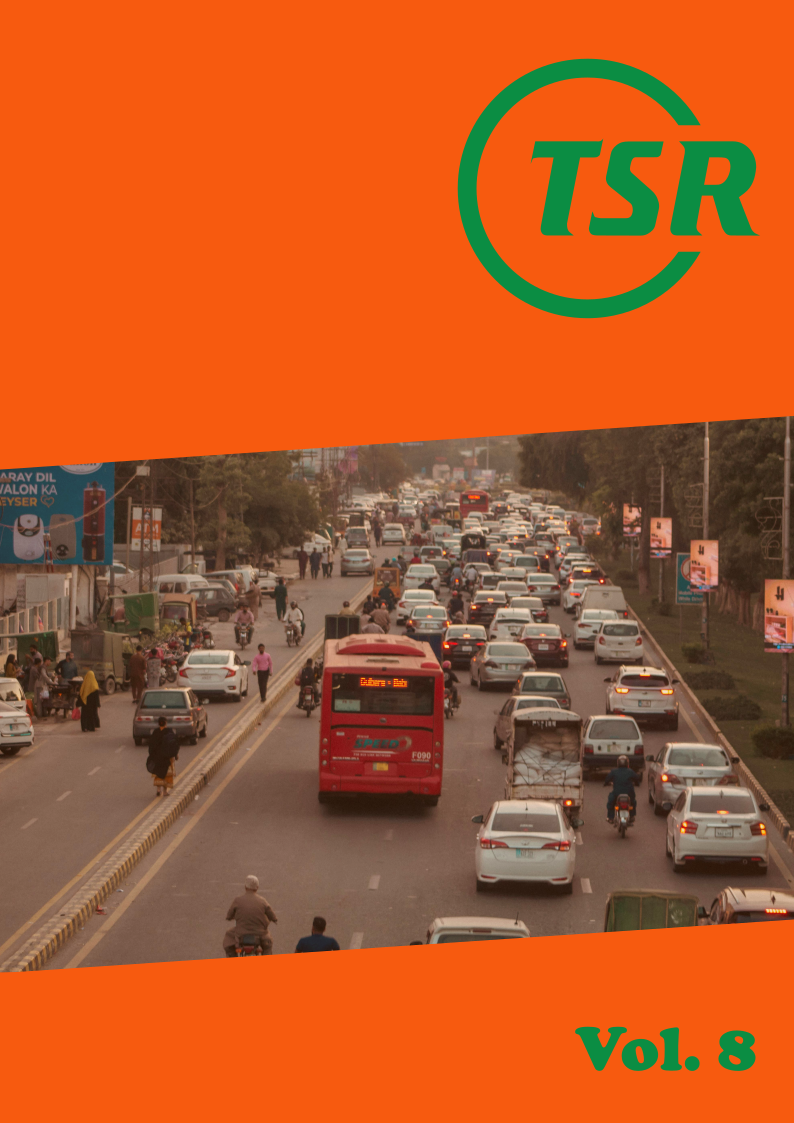Capacity building for road safety in LMICs: the need for a sustainable local knowledge and research infrastructure
DOI:
https://doi.org/10.55329/weks9456Keywords:
education, evidence based policy, knowledge infrastructure, low- and middle-income countries (LMICs), research, road safetyAbstract
Road crashes continue to be a major cause of death and serious injury for low- and middle-income countries (LMICs). At the global level, 90% of traffic fatalities occur in these countries with a dramatic daily amount of 3 260 road deaths, many of whom are children. The first UN Decade of Action for Road Safety 2011–2020 was designed to develop a massive movement towards a decrease of these numbers. This resulted in many initiatives to introduce the safe system approach in LMICs, i.e. to implement road safety management, make roads, road users, and vehicles safer, and improve post-crash health care. International organisations together with NGOs and universities prepared road safety guides and manuals, gave courses and webinars, introduced auditing and inspection systems, with the overall intention to build capacity in LMICs. Together these actions contributed to a variety of road safety developments in LMICs but the overall results were still modest. At the third Global Ministerial Conference on Road Safety in Stockholm, 2020, and in the Global Status report by the World Health Organization, 2023, the results of all efforts were presented and evaluated. Many countries made progress through road safety management and better legislation addressing risk factors such as speeding, drinking and driving, failing to use seatbelts, and poor infrastructure design. However, the reduction in road deaths strongly lagged behind the original goals. Continued implementation of programs and development of new approaches are needed to make a breakthrough, and to reach the goals of the 2nd Decade of Action, i.e. a 50% reduction in fatalities by 2030, and the same percentage reduction in injuries. The present position paper argues that despite the enormous amount of road safety information, which has been and is ‘sent’ to LMICs, and despite the quality and robustness of international organisations behind these programs, there is a shortfall in the scale of the knowledge and research infrastructure currently existing in LMICs, which is needed to ‘receive and transfer’ this knowledge. In order to develop evidence-based policy, LMICs need research programs that are able to transfer safe system principles to the local context and culture. Several literature overviews illustrate the lack of such research in LMICs, i.e. the limited number of programs at local universities and research institutes. Although recently initiatives have been taken in some countries, the implementation of such programs is urgently needed. Based on this observation we call on international organisations to establish a special program for the development of a sustainable road safety knowledge and research infrastructure in LMICs. Such structural local capacity is a prerequisite to translate international road safety knowledge into local guidelines and to develop an evidence-based road safety policy. Most importantly, this local infrastructure will give countries a national knowledge bank, thus providing them with an urgently needed sustainable road safety memory.
Downloads
References
Bliss, T., J. Breen (2009), 'Country guidelines for the conduct of road safety management capacity reviews and the specification of lead agency reforms, investment strategies and Safe System projects', World Bank & Global Road Safety Facility.
Bliss, T., J. Breen (2013), 'Road safety management capacity reviews and Safe System projects', Global Road Safety Facility, Updated edition.
Carnis, L., D. Mignot (2023), 'Road safety management in Africa: challenges and solutions for tomorrow', XXVII PIARC World Congress, Prague, the Czech Republic, 2–6 October 2023.
Godthelp, J. (2023), 'The need for a sustainable knowledge and research infrstructure in LMICs', XXVII PIARC World Congress, Prague, the Czech Republic, 2–6 October 2023.
Goel, R., G. Tiwari, M. Varghese, K. Bhalla, G. Agrawal, G. Saini, A. Jha, D. John, A. Saran, H. White, D. Mohan (2024), 'Effectiveness of road safety interventions: An evidence and gap map', Campbell Systematic Reviews, 20(1), e1367. DOI: https://doi.org/10.1002/cl2.1367
Government Offices of Sweden, (2020), '3rd Global Ministerial Conference on Road Safety: Achieving Global Goals 2030'.
Haghani, M., A. Behnood, V. Dixit, O. Oviedo-Trespalacios (2022), 'Road safety research in the context of low- and middle-income countries: Macro-scale literature analyses trends, knowledge gaps and challenges', Safety Science, 146, 105513. DOI: https://doi.org/10.1016/j.ssci.2021.105513
Heydari, S., A. Hickford, R. McIlroy, J. Turner, A. M. Bachani (2019), 'Road safety in low-income countries: state of knowledge and future directions', Sustainability, 11(22), 6249. DOI: https://doi.org/10.3390/su11226249
PIARC, (2023), 'Road safety in LMICs: Identification and analysis of specific issues', World Road Association (PIARC), A PIARC literature review. Technical Committee 3.1 ‘Road safety’.
PIARC, (2023), 'Specific road safety issues for LMICs: illustrative examples', World Road Association, Technical Committee 3.1 ‘Road Safety’, A PIARC collection of case studies, 2023R13EN.
Rahman, A. K. M. F., F. N. Rahman (2019), 'Complexities of road safety interventions in Low and Middle Income Countries (LMICs) posed a major challenge in achieving decade goal: lessons for the next span', Journal of Injury & Violence Research, 11(2), 75. DOI: https://doi.org/10.5249/jivr.v11i2.1362
SSATP, (n/d), 'Operationalizing the African Road Safety Observatory', SSATP African Transport Policy Program.
Stipdonk, H. (2022), 'Research at the service of policy: What does policy need to know, to know what to do?', 34th International Cooperation on Theories and Concepts in Traffic safety (ICTCT) conference, Gyor, Hungary, Gyor, Hungary, 27–28 October 2022.
Stockholm declaration, (2020), 'Stockholm declaration', 3rd Global Ministerial Conference on Road Safety: Achieving Global Goals 2030.
Vanderschuren, M., M. Arendse, T. Lane-Visser, A. Janmohammed (2019), 'Combatting the road safety burden in the developing world: The case of South Africa', Transportation Research Procedia, 48, 1174–1184. DOI: https://doi.org/10.1016/j.trpro.2020.08.141
WHO, (2023), 'Global status report on road safety', World Health Organization.
WHO, (2010), 'Global plan for the Decade of Action for Road Safety 2011–2020', World Health Organization.
WHO, UN (2021), 'Global plan: Decade of action for road safety 2021-2030', World Health Organisation & United Nations.
Published
How to Cite
Issue
Section
License
Copyright (c) 2024 Hans Godthelp, Paul Wesemann, Henk Stipdonk, Mark King

This work is licensed under a Creative Commons Attribution 4.0 International License.











